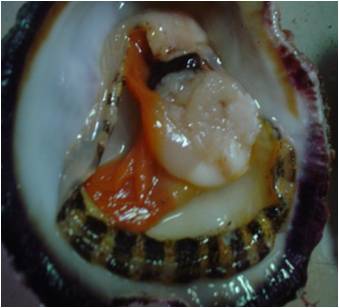Table of Contents
I did not personally visited Surigao Del Sur, but i feel more than that when I interviewed the project leader and researcher itself about the project on Tikod Amo – a delicacy of Lianga Bay in Barobo Surigao del Sur.
Tikod Amo Research
“It is delicious and appears to be the local favorite” said Gemma A. Asufre, researcher from the Surigao del Sur State University (SDSSU) in a presentation of her research titled, “Preliminary Study of Tikod Amo on its Potential as an Oyster Culture Species” at the Bureau of Agricultural Research (BAR) in Diliman, Quezon City.
 Tikod Amo is an oyster species that is found in coastal waters of Lianga Bay in Barobo Surigao del Sur, and because of its good taste, this endemic oyster species is a favourite seafood source in Barobo and adjacent municipalities of Surigao del Sur. Aside from being a delicacy, it is also a good source of income among small fishers in the coastal areas of the province. In fact, “the price of Tikod Amo is higher than the price of any ordinary oyster meat available in the market” said Asufre.
Tikod Amo is an oyster species that is found in coastal waters of Lianga Bay in Barobo Surigao del Sur, and because of its good taste, this endemic oyster species is a favourite seafood source in Barobo and adjacent municipalities of Surigao del Sur. Aside from being a delicacy, it is also a good source of income among small fishers in the coastal areas of the province. In fact, “the price of Tikod Amo is higher than the price of any ordinary oyster meat available in the market” said Asufre.
Natural Stock is Declining
Due to constant harvest, the natural stock of Tikod Amo in the wild is now being threatened.
According to the Municipal Agriculture Office of Barobo, the abundance of Tikod Amo in Lianga Bay is continuously declining due to rampant collection for industry and household consumption. They also observed that the practice of collection is not sustainable that might pose threat not only to the diversity of oyster species in the area but also causes damage to the hard coral substrates where these species naturally dwell.
Tikod Amo is found only in the Philippines
“What is more interesting is that, this species seems unknown in the international species nomenclature database,” we found no information that describes its biological features, thereby we assumed Tikod Amo is a new species said Asufre.
She further said that, Tikod Amo (TA) was observed to have similar characteristics to some widely cultivated oyster species such as Cassostrea iredalei and C. edilus but it differs in the color and morphological descriptions of the flesh inside the valve, where Tikod Amo resembles the “ankle of an ape” – thus the local name “Tikod Amo” derived, explained Asufre.
The study has four components namely: 1) conduct a preliminary study about the biological aspects of Tikod Amo; 2) understand the environmental characterization of the Tikod Amo habitat; 3) observe when Tikod Amo produces an offspring (spat) and collect it for growing out; and, 4) establish growout culture where suitable mariculture practices are tested to prove that this species can be cultivated or cultured.
Based on the initial results of the study, Tikod Amo are observed attaching into rocks, hard corals, logs, shell substrates, bamboo poles, old tires and whatever hard materials that were found in the bottom of coastal waters. “This only indicates that spats (baby oysters) will grow continuously either attached or detached from any substrate, thus showing a high potential for culture,” said Asufre.
The result of the study will help mitigate the declining population of Tikod Amo and open greater opportunity to small fishers not only in Barobo but also in other municipalities that will soon engage in Tikod Amo culture.
Likewise, the study will help the government to address poverty by providing the community with sustainable livelihood, strengthen the wise utilization of coastal and marine resources for sustainable development and complement the existing Coastal Resource Management Plan (CRMP) of Barobo, Asufre added.
The study is funded by BAR, in collaboration with the Bureau of Fisheries and Aquatic Resources – Caraga Fishery Research and Development Center (BFAR-CFRDC), Surigao del Sur State University and the local government of Barobo, Surigao del Sur.
BAR is also funding another research complementary to the research conducted by Asufre, “Systematics of Native Oysters “Tikod Amo” in Barobo Waters” headed by Mr. Miguel Baay of BFAR-CFRDC CARAGA.
This study will characterize Tikod Amo on the molecular level using 16SrDNA-based analysis and determines the phylogenetic relationship of Tikod Amo to other oyster species using a Vector NTI programs or software packages.
The result of the study will include complete morphological characteristics of Tikod Amo designating a common name for submission and inclusion to the International Species Nomenclature.(Edmon B. Agron)
